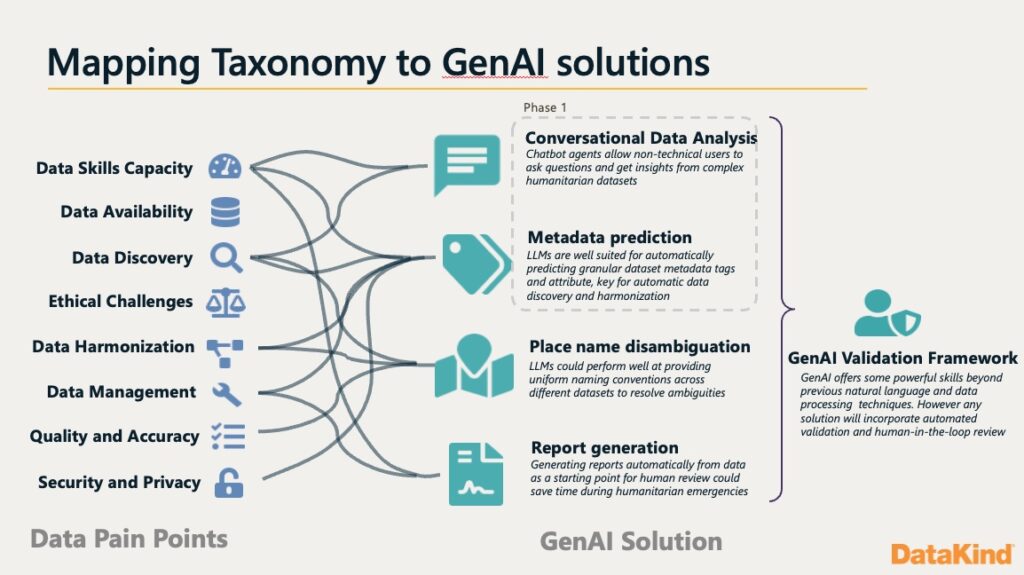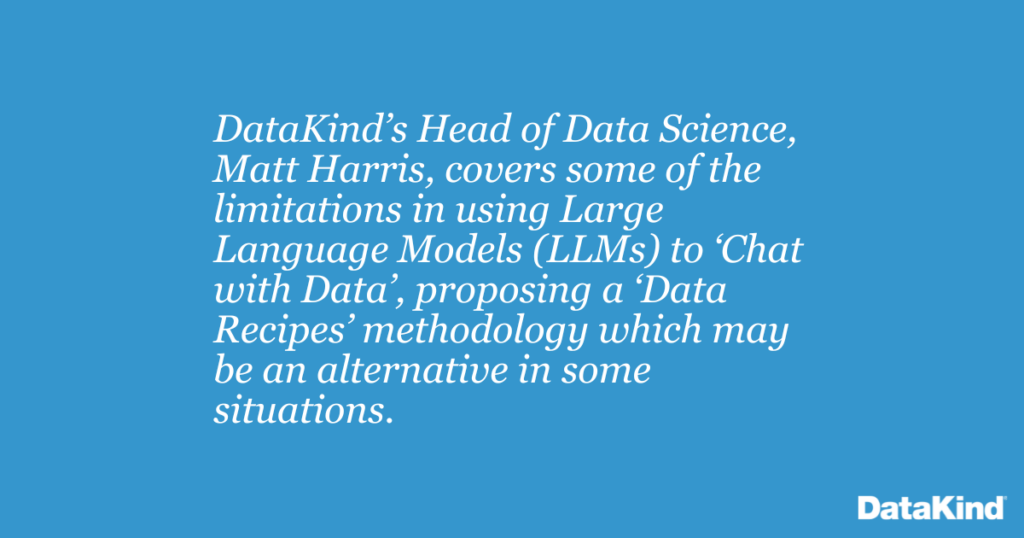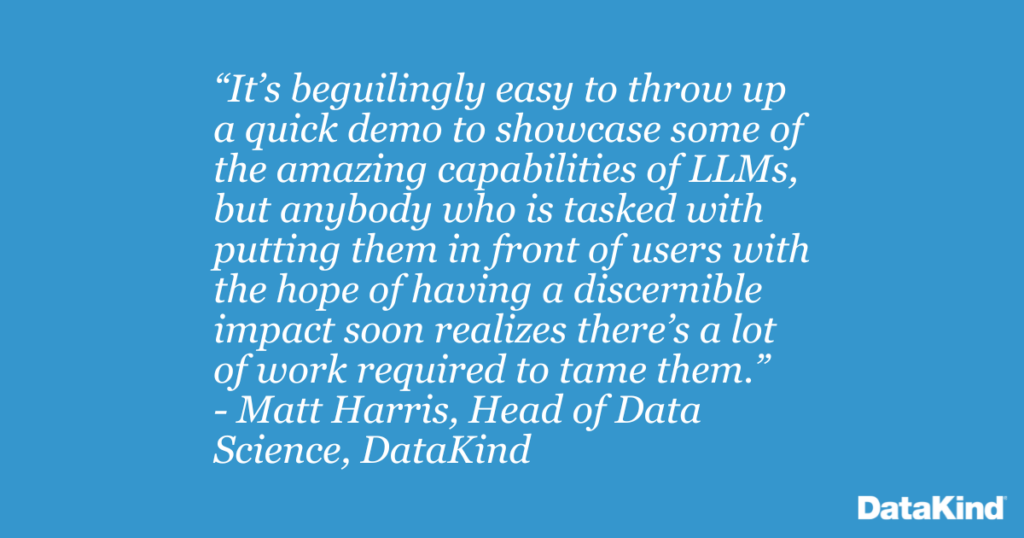Each year, more people are experiencing humanitarian crises. According to UN-OCHA’s Global Humanitarian Overview for 2023, nearly 350 million people around the world are currently in need of humanitarian assistance and protection, a figure that’s 30 percent higher than in 2022. These are driven by global mega-trends, such as increases in forced displacement, conflict, political instability, food crises, and climate change, and of course, poverty. More need also means more cost of delivering aid, current funding is not able to keep pace with demand.
Today, DataKind is presenting solutions to this complex problem at Microsoft’s Global Nonprofit Leaders Summit, an exclusive two-day event hosting nonprofit leaders from around the world to engage, elevate, and empower each other with tools for leading in tech and AI. At the summit, DataKind CEO Lauren Woodman is presenting some exciting new developments in our partnership with Microsoft and Save the Children to create the Humanitarian Data Insights Platform (HDIP).
DataKind, in partnership with Save the Children and Microsoft, are leveraging GenAI technology to create a platform that would improve the sector’s ability to respond more efficiently and effectively. New developments in generative AI offer profound and transformative opportunities to enable more evidence-based, coordinated, and timely humanitarian action within and across crises. These tools would enable people working in the humanitarian space to access accurate, timely data in emergency situations. This would enable them to make better-informed decisions quickly.
DataKind’s user research with people working on-the-ground in humanitarian response has identified two top pain points limiting their ability to use data: a lack of harmonized data and a lack of data skills and capacity. Essentially, these are issues of interoperability, needing both data organization that can be more easily interpreted, and more data skills and capacity to manage the data and glean insights. In response, DataKind is proposing two code-driven solutions within the platform: conversational data analysis and metadata prediction.

Conversational Data Analysis
The goal of conversational data analysis is to extract insights, patterns, and meaningful information from complex datasets, such as data generated through human communication. This reduces the barrier for non-technical people to be able to more easily glean insights, and speaks to the key pain point identified.
This data would also help in identifying early warning signs of crises, allowing for proactive measures, and be a key resource for identifying vulnerable populations, improved collaboration, and for community engagement and feedback.
With a connected dataset, we can then set up analysis programs such as conversational data analysis, which allows for information extraction following patterns similar to asking another human, or engaging in an SMS conversation. It requires little code and gets a human-readable response to action.

Metadata Prediction
Metadata prediction supports humanitarian response by facilitating efficient data management, enabling quick and informed decision-making, and improving the overall effectiveness of response efforts. It enhances the capabilities of responders to understand, analyze, and act upon critical information in rapidly changing and challenging environments. The problem identified by the team of harmonizing data can be understood as having datasets that are not connected. Metadata tag prediction gives us a data field to connect data sets on, unlocking the information in a way that allows the analysis to occur.

Join our Community & Test our Solutions
DataKind is looking for humanitarian professionals to join our Humanitarian Data Insight Generation Community of Practice to engage in deeper user research and test AI-powered solutions as they’re in development. Anyone working in the humanitarian sector globally is welcome, especially humanitarian aid workers, advisors, researchers, data professionals, admin professionals, funders, and advocates. Sign up!



